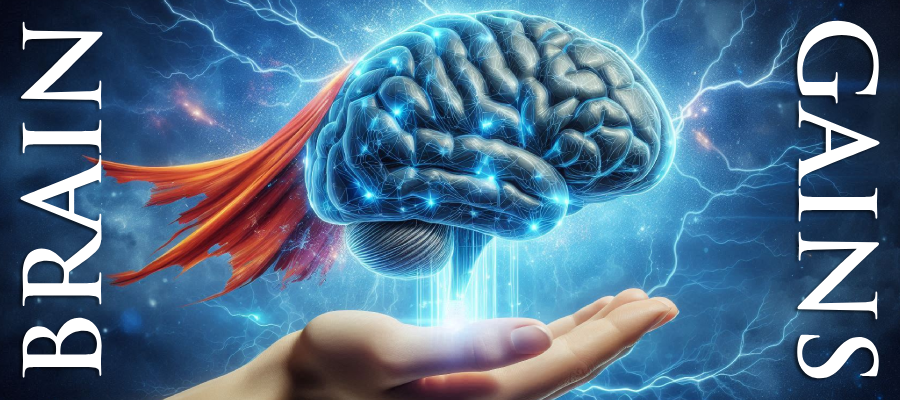Learning Keeps Your Brain Sharp
Our brains, like our muscles, require regular exercise to stay strong and healthy. Engaging in deliberate learning activities can significantly enhance brain function, keep the mind sharp, and prevent mental decline. Define irony in the idea that we live in an age where education is becoming less of a priority, our diet is worse than ever, and we are watching IQ levels drop accordingly.
Yes, diet is important, and I will provide a link for your consideration on that topic. However, diet is only part of the issue. We should be aware that many Americans are losing some of their cognitive abilities. The jury is still out on why, but the truth is that you don’t have to fall victim. Here’s how you can incorporate purposeful learning into your daily routine to enhance brain function.
The Science Behind Learning and Brain Health
First, we need to understand that our brains are highly adaptable. Neuroplasticity refers to the brain’s ability to reorganize itself by forming new neural connections throughout life. However, we need to understand that learning new skills or information stimulates this process. This is to say that learning enhances cognitive function and resilience. Building a robust cognitive reserve can help delay the onset of age-related cognitive decline. Engaging in mentally stimulating activities strengthens neural networks, making the brain more resilient to damage and deterioration.
So, this is to say that you need to learn new things. However, learning new things also requires concentration and memory, which in turn improves these cognitive functions. Practicing these skills regularly can enhance overall mental acuity and focus. Additionally, challenging yourself with new information or skills forces your brain to think critically and solve problems, which can improve your ability to navigate complex situations in daily life. However, this means that you need to examine information that challenges you – something most are no longer willing to do.
How to Incorporate Learning into Your Daily Routine
To keep your brain sharp, I recommend setting learning goals that identify areas of interest or skills you want to develop. This could range from learning a new language, picking up a musical instrument, or simply attempting to understand a new scientific concept. However, the key seems to be that engaging with information that challenges your current understanding. That’s because it not only broadens your perspective but also stimulates critical thinking and mental flexibility. In other words, don’t shy away from information that challenges your previous notions.
Similarly, exploring new ideas by reading books, listening to podcasts, or watching documentaries on topics you know little about can keep your brain engaged and curious. However, consistency is key! Dedicate a specific time each day to focus on learning. Even 15-30 minutes can make a significant difference over time.
You could also incorporate social learning by joining or creating study groups, attending workshops, or participating in discussion forums to gain diverse perspectives and deepen your understanding. Leverage educational apps, online courses, and digital libraries to access a vast array of learning resources. There are plenty of free options to consider, such as EdX. Also, platforms like Coursera, Khan Academy, and Duolingo provide structured learning opportunities in various fields.
The Dangers of Mental Inactivity
Allow me a moment to provide a subtle warning. Just as physical inactivity can lead to muscle atrophy, mental inactivity can cause cognitive decline. Relying solely on old information and not seeking new challenges can result in a stagnant mind, which can actually make it harder to adapt to new situations, solve problems, and retain information. That’s not good!
To prevent this, practice mindfulness and/or meditation, which can improve focus, reduce stress, and enhance cognitive functions. Additionally, regular physical exercise, a balanced diet, and adequate sleep are also crucial for optimal brain function. Physical activity, in particular, boosts brain health by increasing blood flow and promoting the growth of new neural connections.
Creative Pursuits and Tracking Progress
This one is often overlooked or underappreciated, but engaging in creative activities like drawing, painting, writing, or playing music stimulates different parts of the brain and enhances cognitive flexibility. Creativity encourages you to think outside the box and approach problems from unique angles. I’m also a big fan of journaling. Keeping a learning journal can help you track your progress and reflect on what you’ve learned, reinforcing new knowledge and providing motivation as you see your growth over time. Plus, writing helps you “own” the information on a different level!
Reinforcing the Importance of Lifelong Learning
Lifelong learning isn’t just about acquiring new skills or knowledge; it’s about fostering a mindset of curiosity and adaptability. In an ever-changing world, the ability to learn and adapt is invaluable. By making deliberate learning a daily habit, you not only enhance your brain function but also prepare yourself to navigate future challenges with confidence and resilience.
Final Thoughts
Incorporating purposeful learning into your daily routine is crucial for maintaining and enhancing brain function. By setting learning goals, challenging your beliefs, exploring new ideas, practicing regularly, and reflecting on your experiences, you can keep your mind sharp and resilient. Additionally, engaging in social learning, leveraging technology, practicing mindfulness, making healthy lifestyle choices, pursuing creative activities, and tracking your progress can further support your cognitive health.
Remember, the goal is not just to avoid mental atrophy but to thrive intellectually. Lifelong learning keeps your brain active and vibrant, enabling you to lead a more fulfilling and intellectually rich life. Don’t be satisfied with old information; seek out new knowledge every day to prevent mental atrophy and keep your brain healthy and active.
If you are interested in learning more about ideal food choices, check out my article Nature’s Intent Is Easy To Understand




